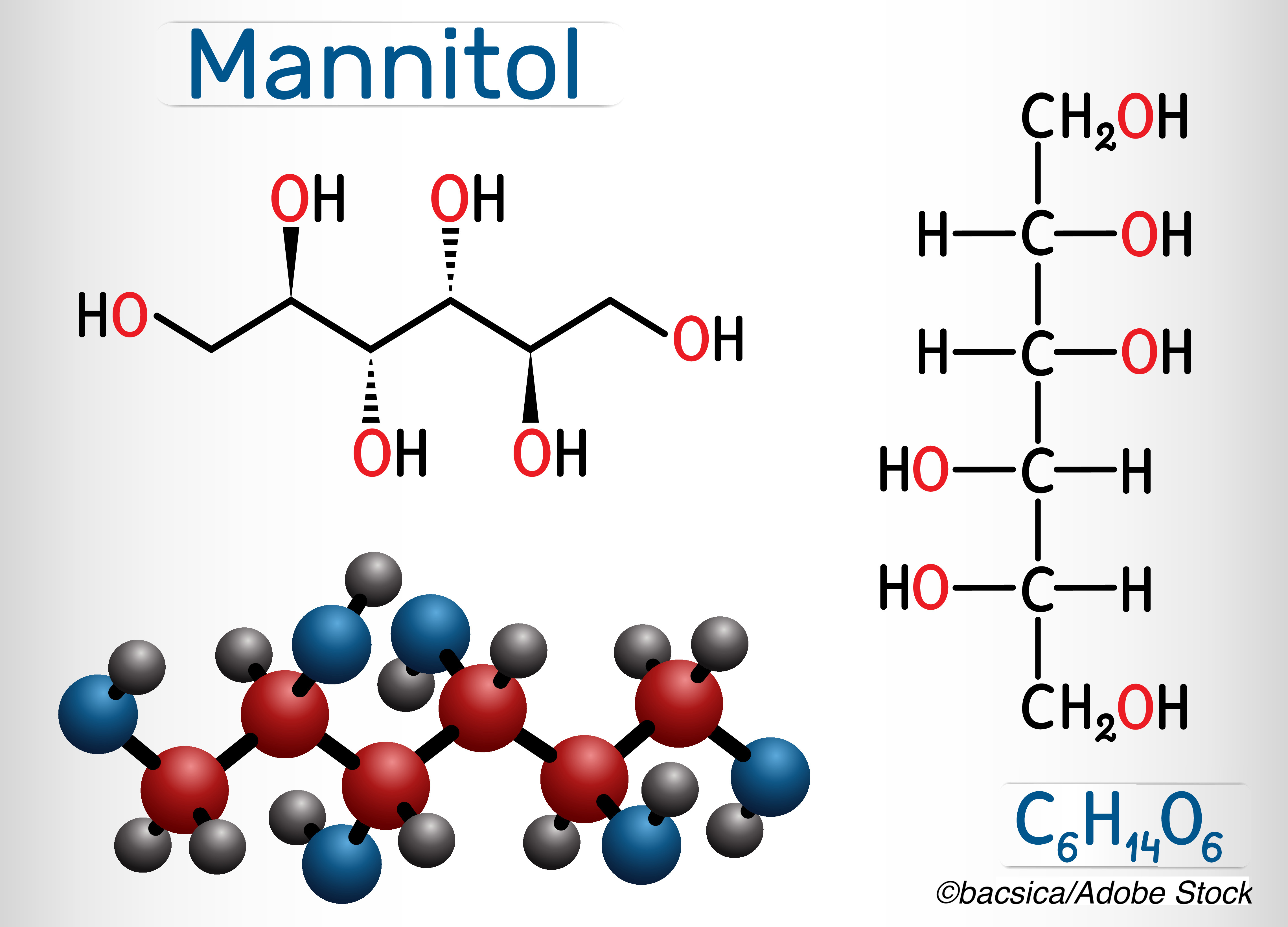WASHINGTON — The FDA has approved mannitol (Bronchitol), an inhaled dry powder, as add-on maintenance therapy to improve pulmonary function in adult patients with cystic fibrosis (CF).
Mannitol, a sugar alcohol that is currently on the market in Australia, Italy, Germany, Russia, and other countries, is “the first and only inhaled dry powder therapy” to gain FDA approval for this indication, the drug’s manufacturer, Chiesi USA, Inc., explained in a press release. The drug is indicated for oral inhalation use in patients who have passed the BRONCHITOL Tolerance test, which must be administered by a health care professional who is equipped to monitor SpO2 and FEV1, as well as manage acute bronchospasm, according to the drug’s prescribing information.
This approval is based on results from three global clinical trials involving a total of 761 adult patients with cystic fibrosis. According to the manufacturer, mannitol led to a statistically significant improvement in forced expiratory volume in one second (FEV1) compared to placebo over a 26-week treatment period. The most common adverse reactions reported during the trials were cough, hemoptysis, oropharyngeal pain, vomiting, bacteria sputum identified, pyrexia, and arthralgia.
Mannitol has the potential to cause bronchospasm in susceptible patients, according to the drug’s prescribing information. For this reason, the drug is only indicated for patients who pass the BRONCHITOL Tolerance test (BTT), which must be administered by a health care professional who is equipped to monitor SpO2 and FEV1, as well as manage acute bronchospasm.
“Do not prescribe [mannitol] if the patient fails the BTT,” the prescribing information warns. “Patients who pass the BTT may experience bronchospasm with maintenance use of [mannitol]. Advise patients to premedicate with an inhaled short- acting bronchodilator prior to each administration of [mannitol]. If bronchospasm occurs, immediately discontinue [mannitol]. Treat bronchospasm with an inhaled short-acting bronchodilator.”
Physicians should also monitor patients taking mannitol who have a history of episodes of hemoptysis, the manufacturer added — if hemoptysis occurs, patients should discontinue mannitol treatment.
John McKenna, Associate Editor, BreakingMED™
Cat ID: 491
Topic ID: 89,491,730,192,725,491,925




Create Post
Twitter/X Preview
Logout